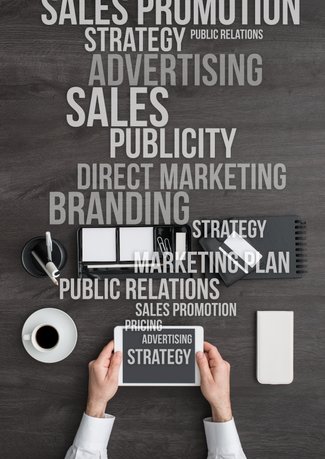DIGITAL MARKETING
WHAT IS DIGITAL MARKETING?
From a general standpoint, marketing is the practice of identifying and satisfying customer needs. This is a particularly important task in our business. Successful marketing efforts can drive inbound leads and attract a large customer base.
With the explosion of digital technology—including widespread and pervasive use of computers and smartphones—our very own hospitality business began to experiment with new marketing tactics.
Digital marketing today is as important, if not more so, than traditional marketing methods. This divide seems destined to grow wider over time, as many businesses are diverting funds from traditional to digital marketing methods. Taken as a whole, it is vital for your business to plan and execute a viable digital marketing strategy.
That being said, there are several common methods for conducting digital marketing, including:
- Search Engine Optimization (SEO) — SEO is the practice of improving ranking within major search engines to increase online traffic.
- Search Engine Marketing (SEM) — SEM leverages paid online advertising to increase website visibility within search engines. SEM is often used in conjunction with SEO.
- Pay-Per-Click (PPC) — PPC is an online method for advertising where a business only pays for its ads when a person clicks on them.
- Social Media Marketing (SMM) — SMM is the practice of using social media channels to promote business products or services.
- Email Marketing — Email marketing enables businesses to send branded, promotional content directly to prospective customers via email. The use of automated newsletters is common in this context.
- Content Marketing — Content marketing refers to the publishing and distribution of text, video or audio materials to customers online.
- Native Advertising — Native advertising involves blending marketing materials into a medium, making the underlying message and marketing purposes equally important. Sponsored content, in which one business posts its own content on a different website, is a common method of native advertising.
The many advantages to digital marketing:
- Measurable: Because the interaction with digital technologies often gives off data, it is possible to measure the number of interactions. These can be, for example: impressions of a website, clicks in an email, the number of conversions on an advertisement and the number of reservations. This creates more insight and control over the activities, costs and results and allows you to evaluate better.
- Cost: You can reach a larger audience with digital media for less money than with traditional media. This of course depends on the channel and content type you choose.
- Targeting & segmentation: It differs per channel what you know about a customer and / or on which you can target and segment, but in many cases, it can be specific to the person, such as: visitors to your website, people with a specific interest or a determining characteristic such as age or profession. This allows you to communicate in a more targeted way and you are more relevant to the recipient.
Geographic reach
You can reach people almost all over the world through digital technologies. So that you do not have to have an office abroad or send promotional material around the world, for example.
- Availability: Digital technologies are in many cases available 24 hours a day.
- Automation: Many of the digital marketing channels can be partially automated so that you can communicate continuously with a one-time effort
- Non-linear: Because the communication expressions can be automated, it means that this does not necessarily have to be communicated to all sides at the same time. This can be different down to the customer level, so that the communication is better suited to that specific customer.
As you can see, there are many advantages of digital marketing over traditional marketing. Enough reason to work on it!
MARKETING STRATEGY
What is a market strategy and how to use it?
A marketing strategy refers to the overall strategy of our business to reach a potential audience and turn them into customers.
The bottom line of your marketing strategy is optimizing the number of bookings you generate, building brand awareness, and managing your reputation. Whether it concerns Business or Leisure clientele. In short, with a good marketing strategy you significantly increase the chance of success.
The content of a successful marketing strategy is composed of several ingredients:
- A thorough analysis of your case
- Determine the target group of potential customers
- Exploring the market and application
- Prepare a competitive analysis
- A SWOT analysis
Drawing up a market strategy:
- Market penetration: existing facilities and/or facilities for existing markets
- Market development: existing facilities and/or facilities for new markets
- Product development: new facilities and/or facilities for existing markets
- Diversification: new facilities and/or facilities for new markets
With a Google -My Business- account you get more than just your accommodation listing. Your business profile can help your business connect with potential customers through Google Search and Maps. From here, promotions, visibility and positioning campaigns can be developed, among other things, thanks to Google Ads and Google Analytics. I can help your business to reach the right target group anywhere in the world with targeted and effective marketing strategies.
SOCIALE MEDIA
In terms of today's short-term rental industry, it is almost unforeseeable to function without an online social media presence.
Look at this way: social media is a giant "engine" that consumes information as its source of fuel. The more “fuel” – information – we pump into it, calculated information that is, the better your online presence and visibility develops.
It is important to understand what information or better said “content” is needed, so that your targeted audience and or your potential customers may find you on the world wide web.
What matters is to be able to create qualified content, optimized for publication on the right channel, carefully planned and finally aimed at the right audience.
I can help you create and track content to generate leads and therefore potential customers in an effective way.
REVIEWS
Reviews are perhaps the most important information our customers consult, when booking an accommodation. Did you know that 75% of travelers read reviews before making a reservation.
In addition, you find that 68% of travelers find online reviews very important when choosing an accommodation, and 49% do not dare to book an accommodation or hotel without reviews. This tells us that the reviews have a direct impact on the performance of our short-term rental unit, hotel or that of your B§B.
Traditionally, word of mouth is often considered the most powerful tool for any marketer. It is important that we in the accommodation business treat online reviews as a vital addition to our day-to-day operation. The best way to ensure that online reviews become a positive driver is to have a clear plan on how to deal with them.
Secure online platforms focused on collecting customer reviews from our OTA’s are widely available online. These reviews in turn may be embedded onto our webpage using a widget.
Please feel free to contact me, as I can assist you developing an efficient review management policy for your property. Review management is undoubtfully beneficial for your online reputation as a whole.




